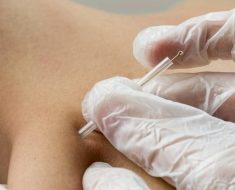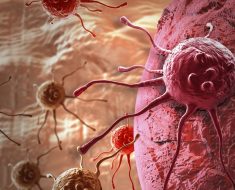While the world of supplements can be crowded with fake facts, clinical trials on the ‘NR’ supplement suggest a not-so-distant future where we can slow aging.

Could a single molecule help us turn back the clock on age-related illness, as well as physical and mental decline?
The results of an anxiously-awaited and closely-watched clinical trial are pointing to that exciting conclusion.
In a new study published in the medical journal Nature Communications, researchers showed that a commercially available form of vitamin B-3, called nicotinamide riboside (NR) chloride — or NIAGEN —boosted a key enzyme in our cells that could potentially slow the aging process.
The enzyme is called nicotinamide adenine dinucleotide (NAD+) and it’s found in all cells. It’s responsible for DNA repair. It also works with proteins to preserve health — particularly under conditions of stress — and is a key component in the creation of cellular energy.
Findings from the new study showed that NR supplementation was safe and effective for use in humans and it raised the levels of NAD+ in healthy middle-aged and older adults.
How NAD+ and NR work together in the body
At birth, the body has a healthy supply of NAD+. However, it diminishes with age.
To date, the most common way of boosting those levels later in life has been through strict calorie reduction.
NR is found in very low levels in food sources, such as whole milk, and it’s the synergy between NAD+ and NR that sustains healthy living. However, as the amount of NAD+ in the body declines naturally with age, the energy level of numerous enzymes is also decreased.
Since NAD+ is required to convert fuel into energy that powers muscles, circulates blood, and initiates the repair process for damaged DNA, diminishing levels of this molecule are what causes aging to become evident.
The new research showed that use of NR as a supplement can lead to similar health benefits that occur when NAD+ levels are boosted through a strict calorie reduction program.
Researchers looked for measures of cardiovascular health, metabolic function, motor performance, and exercise capacity. They found that NR may normalize systolic blood pressure and arterial stiffness — two key independent risk factors for cardiovascular disease.
“There’s a lot of excitement in the area of boosting NAD+ levels as a way to reverse aging,” says Christopher Martens, PhD, who linked increased NAD+ levels to an improvement in a wide array of specific conditions in animal models.
He adds, “Now that we have shown that this is well-tolerated and effective at boosting NAD+, we are at a place where we are ready to start seeing if these health benefits translate to humans.”
The NR clinical trial
Sixty healthy middle-aged and older adults were recruited from Boulder County, Colorado for the trial. Thirty subjects were then enrolled in the study and consumed NR at 500 milligrams (mg) twice a day and then a placebo for six weeks.
“NAD+ is critically involved in just about every metabolic process in our cells,” says Martens, who served as the lead investigator of the trial while completing his postdoctoral training with Doug Seals in the Integrative Physiology of Aging Laboratory at CU Boulder. “It’s particularly important for generating adenosine triphosphate (ATP), which is the body’s primary form of energy, but it also helps boost enzymes responsible for protecting our cells against stress and damage.”
He adds, “We believe that by boosting NAD+ back to youthful levels, we can improve physiological function and possibly prevent the risk for age-related diseases.”
Two companies are currently selling the compound on the market, ChromaDex and Elysium Health. But is current research enough to convince people to go out and purchase the products that are currently being sold as an over-the-counter supplement?
Martens says it’ll take time, and more research needs to be done. “You can buy it and take it, but we need more definitive evidence showing that it works and this study was the first step in that direction.”
The past and future of NR
While Charles Brenner, PhD, chief scientific officer at ChromaDex, was on staff at Dartmouth College, the discovery was made that NR was a vital precursor of NAD+.
In other words, if you can get NR into the cells, NAD+ will follow.
Brenner is now actively translating those findings to treat and prevent health conditions, such as diabetic and chemotherapeutic peripheral neuropathy, heart failure, and brain injury, as well as help cholesterol management and weight control.
He’s already done the preclinical testing studies, largely on yeast, worms, mice, and rats.
Brenner says his next step will be to move on to efficacy trials. Now that they know the compound is safe, what endpoints can be reached in disease modification? “Currently, NR is marketed as an over-the-counter supplement, so it is not intended to treat or to prevent any disease or condition, although the suspicion is that people with disease conditions may enjoy even greater benefits.”
He says that when they tested NR use on stressed animals, they saw improvements in insulin sensitivity, weight control, neuropathy, noise-induced hearing loss, and diabetes.
“The suggestion from animal research in conditions of metabolic stress is that NR could regularize metabolism and it has the potential to treat human diseases, but clinical testing is required,” he adds.
Elysium Health, the other company currently selling NR products, was founded by Leonard P. Guarente, PhD, professor of Biology at MIT. Guarente is also the company’s chief scientist. A renowned expert on lifespan extension, he was responsible for discovering that calorie restriction activates genes that carry the ability to slow aging.
The main ingredient in Elysium’s product, called Basis, is NR. But they also add a second ingredient in their product: pterostilbene (pronounced tero-still-bean).
It’s a type of phytonutrient that’s considered superior to resveratrol in that it’s the biologically-active ingredient in blueberries. Experiments suggest it has several important health benefits.
Elysium also has a completed clinical trial under their belt. It showed that NAD+ levels could be increased by an average of 40 percent at a standard dose of 50 mg of pterostilbene and 250 mg of NR, a day. (The company’s product, Basis, contains both these ingredients).
“Ours was a baseline, foundational trial with results published at the end of last year, where our aim was to get more data on safety, which we did,” says Guarente. “The important data was that we could raise NAD+ in a sustainable way in a large number of people who were dose responsive.”
Guarente says Elysium has a number of additional clinical trials in the works, including one partnering with the FDA on a Phase I trial for acute kidney injury, which he called a “very serious problem.”
“Kidney injury occurs often in the setting of a hospital in surgical patients where the kidney actually shuts down. Serious damage can occur rapidly, which would require dialysis for a lifetime. We want to impact that,” he says, pointing out that NR use may also help reverse issues caused by fatty livers and improve skin health as well.
“We have a lot of reasons for thinking that this would be effective for UV damage, which chronically would lead to skin aging, and in certain cases, skin cancer. If you can hit it at the beginning, there is a beneficial effect on the skin,” Guarente says.
If more positive research findings continue to be published, NR could prove to be one of the keys to a happier, healthier, and longer life.
Source: Read Full Article





